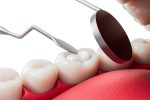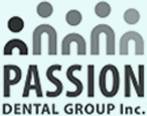Temporomandibular Joint Disorder (TMJ) is located in your jaw joint, and it is the one that attaches your lower jaw to your skull. In case this joint is damaged or placed in an inappropriate position, it may cause pain, discomfort, and limited movement. In case of the constantly growing jaw pain, popping, or headaches, it is important to visit a dental clinic near you and seek an examination. TMJ disorders may be of different severity, and complications may be avoided with the help of timely diagnosis.
What Is a TMJ Disorder?
TMJ disorder can be defined as a set of disorders that involve the temporomandibular joint, muscles, and the ligaments around it. These are the joints that are important in daily activities such as chewing, talking, and yawning. There is no fun when they go wrong and can lead to pain and unhappiness in your jaw, face, and even neck.
Common causes include:
- Jaw injury or trauma
- Teeth grinding (bruxism)
- Jaw clenching caused by stress or anxiety.
- Arthritis in the jaw joint
- Poor bite position or posture.
Knowing what constitutes a TMJ disorder can enable you to know when to reach out to the doctor early enough before the disorder deteriorates.
Common Symptoms of TMJ Disorder
The first step to successful treatment of TMJ disorder is to understand the symptoms of TMJ disorder. Although symptoms may vary according to the individual, the most frequent ones are:
1. Jaw Pain and Tenderness
You may experience pain on either or both sides of your jaw, particularly when eating or talking.
2. Clicking or Popping Sounds
A clicking or popping sound when you open or close your mouth is a good sign to show that you have misaligned jaw joints.
3. Difficulty Opening or Closing the Mouth
Due to lack of mobility or a locking-like feeling, eating and talking can be problematic.
4. Ear Pain or Fullness
Most patients get bewildered by the pains experienced by TMJ due to the proximity of the ear canal to the jaw joint.
5. Headaches and Facial Pain
A common symptom associated with TMJ tension is chronic headaches, especially in the temples or forehead.
6. Neck and Shoulder Pain
The result of the misaligned jaw tension may spread to your neck and shoulders and make them stiff and sore.
When the symptoms continue, then it is time to visit a dentist in Peterborough who has experience in diagnosing and treating TMJ disorders.
Treatment Options for TMJ Disorder
TMJ disorder is treated depending on the causative factor and the severity. Non-invasive intervention in most instances is used to relieve pain and normalize functioning. TMJ treatment is commonly divided into:
- Mouthguards or Splints: These are used to avoid grinding of teeth and clenching of the jaw.
- Physical Therapy: Jaw muscles can be made stronger through exercises and help in movement.
- Medication: Anti-inflammatories or tranquilizers may alleviate pain and inflammation.
- Stress Management: It can be relieved through relaxation methods to alleviate tension clenching.
- Fitment of Dentures: In case the problem lies in misplaced teeth, having them fixed through biting could be of benefit.
- Surgery (in rare cases): Only in case of failure to alleviate diseases with conservative measures.
In case you are thinking of TMJ treatment in Peterborough, your dentist will design the plan that will suit you best.
The Cost of TMJ Treatment
TMJ treatment may be expensive depending on the nature of your case, diagnosis, and also the form of treatment required. On average:
- First Visit and Diagnosis: $100-$200.
- Customized mouthguard or splint: $400–$1,000
- Therapy sessions: $100-$150/visit.
- Medication Costs: Vary depending on prescription.
- Complex treatments (i.e., surgery): $3,000- $10,000.
It is important to discuss treatment options with your dentist, including related dental fees, during your office consultation. A number of dental offices will offer payment plans or dental coverage to make TMJ treatment less expensive.
Conclusion
TMJ disorder may impact your quality of life and your ability to function in everyday life. The good news is that with effective treatment, you will likely be able to function without discomfort. If you have experienced difficulty in the use of your jaw, headaches, and tenderness in your jaw or the inability to open your jaw, contact Chemong Family Dental for individualized TMJ treatment options and relief.
Book Your Appointment today!










